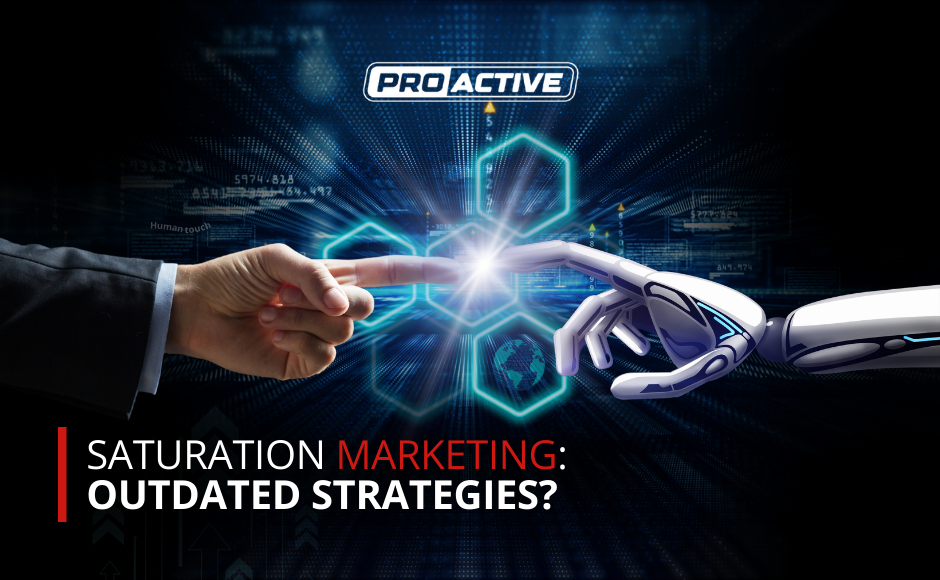In marketing, the effectiveness of traditional saturation marketing techniques is waning. Saturation marketing, which focuses on blanketing the market with repetitive, broad-spectrum advertising messages, is facing a decline in efficacy. This decline is due to several factors, including consumer desensitization, advancements in technology, and changing consumer expectations. As a result, more companies are turning towards relationship selling and personalization, enhanced by AI automation and virtual assistance, to achieve better results. This article explores why saturation marketing is falling out of favor and how modern marketing techniques are proving to be more effective.
The Decline of Saturation Marketing
Saturation marketing has been a staple strategy for many businesses, operating under the assumption that more exposure equals more sales. However, this approach has several inherent flaws in today’s digital age:
- Consumer Desensitization: With an overwhelming number of advertisements bombarding consumers daily, from pop-up ads on smartphones to commercials on TV, people have become desensitized. The constant exposure leads to ad fatigue, making consumers less responsive to generic messages.
- Ad Avoidance Technologies: The rise of ad blockers and subscription services that offer ad-free experiences, such as Spotify Premium and YouTube Premium, have made it harder for saturation marketing to reach its audience effectively.
- Fragmentation of Media: The diversification of media channels and platforms means that the audience is more spread out than ever. This fragmentation makes it challenging for saturation marketing to impact a significant portion of the target audience comprehensively.
- Cost Inefficiency: Saturation marketing is often a costly endeavor that does not guarantee a return on investment. With increasing costs for media placements and diminishing returns due to consumer avoidance, the financial viability of saturation strategies is questionable.
In contrast to saturation marketing, relationship selling and personalization represent a strategic pivot towards understanding and addressing the specific needs and preferences of individual customers. Enhanced by AI automation and virtual assistance, these approaches are setting new standards in marketing effectiveness.
- Personalization: AI-driven data analytics allow for personalized marketing at scale. Companies can now tailor their messaging and offers based on individual consumer behaviors and preferences, dramatically increasing the relevance and effectiveness of their campaigns.
- Relationship Selling: This strategy focuses on building long-term relationships with customers rather than treating each transaction as a one-off interaction. Sales teams use CRM systems, enhanced by AI, to better understand customer histories and predict future needs, thereby fostering a more personalized engagement.
- AI Automation: AI automates routine tasks such as data collection, analysis, and customer service inquiries, allowing human staff to focus on more complex and personalized customer interactions. This not only improves efficiency but also enhances the customer experience by providing timely and relevant responses.
- Virtual Assistance: AI-powered virtual assistants can handle a multitude of customer interaction points, from initial inquiries to after-sales support. They provide a consistent, always-available contact point that helps build trust and reliability between the brand and its customers.
The shift towards relationship selling and personalized marketing backed by AI is more than just a trend; it’s a response to clear analytical results. Studies and real-world applications show that personalization can deliver five to eight times the ROI on marketing spend and lift sales by 10% or more. Moreover, brands that create personalized experiences by integrating advanced digital technologies and proprietary data are seeing revenue increase by 6% to 10%. Saturation marketing is increasingly being seen as an outdated strategy that fails to resonate with the modern consumer. In contrast, relationship selling and personalization, powered by AI and virtual assistance, offer a more targeted, efficient, and cost-effective approach. As technology continues to evolve, so too will marketing strategies, with a growing emphasis on making meaningful connections with consumers. Companies that adapt to these changes and invest in relationship-based, personalized marketing will likely find themselves ahead of the competition in achieving sustained business growth.
Utilizing a sales first team that has extensive experience in AI and Automation specific to sales is essential to your success. Technology has made significant advancements, and your team should be monetizing them within your sales strategy and process. I welcome you to reach out and ask questions.
JP O’DONNELL
PROACTIVE – President / CEO
![]() M:425-384-3775
M:425-384-3775
![]() jp@proactivebda.com
jp@proactivebda.com




